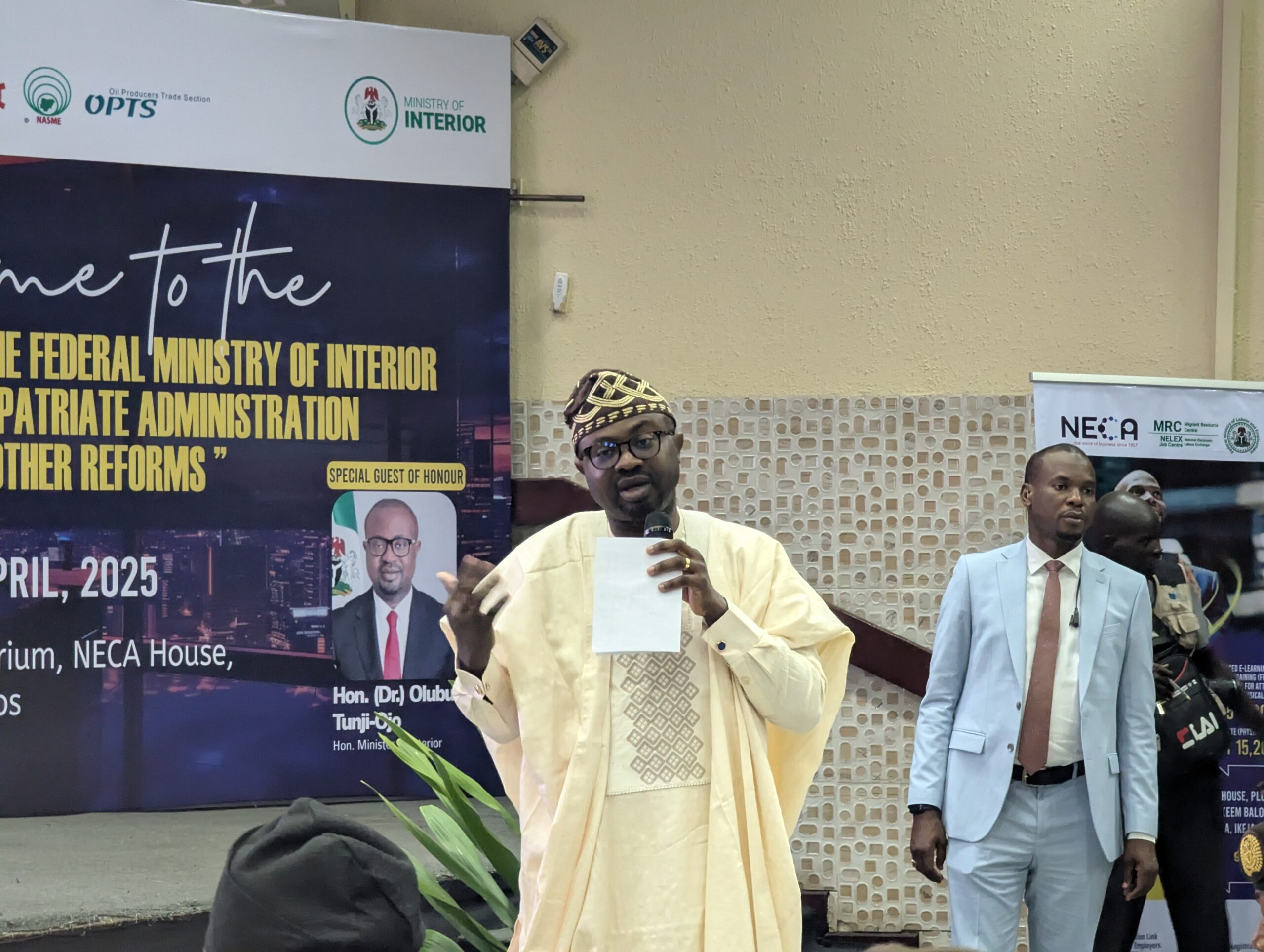
The Minister of Interior, Dr. Olubunmi Tunji-Ojo, has unveiled comprehensive reforms aimed at overhauling Nigeria’s expatriate administration, enhancing national security, and fostering a transparent and business-friendly environment.
Speaking at a one-day sensitisation programme in Lagos, the Minister announced the establishment of a dedicated Expatriate Support Desk (ESD) within the Nigeria Immigration Service. The desk will serve as a liaison between the Ministry, the Nigeria Employers’ Consultative Association (NECA), and the organised private sector, addressing concerns related to business permits, expatriate quotas, the Combined Expatriate Residence Permit and Aliens Card (CERPAC), Temporary Work Permits (TWP), and other immigration processes.
He explained that the reforms would be driven by a digitised Expatriate Administration System (EAS) aimed at closing loopholes and promoting transparency.
“We cannot afford blind spots in immigration management in today’s data-driven global economy,” Tunji-Ojo said.
Starting 1 May 2025, key reforms include the introduction of an e-Visa system guaranteeing visa issuance within 48 hours, and the automation of landing and exit cards, which must be filled online before arrival and departure respectively. These measures, the Minister said, will aid data collection, curb visa overstays, and boost investor confidence.
A three-month grace period has been announced for expatriates to regularise their immigration status, ending on 31 July 2025. Enforcement begins 1 August, with penalties for defaulters.
In a bid to strengthen accountability, the Minister also announced new insurance policies for expatriates, including personal liability cover and a complementary insurance package. These policies will be funded either through a one-off bulk payment or an annual bond-based plan—both to be provided by employers.
He warned foreign nationals to abide by Nigerian laws, stating: “Whatever you cannot do in your own country, do not attempt in Nigeria.”
Dr. Tunji-Ojo noted that there are currently fewer than 15,000 documented expatriates in Nigeria—a figure he described as disproportionately low for the country’s economic potential. To address skill gaps, he announced plans for mandatory understudy programmes and enforcement of community quota requirements.
On the Special Expatriate Permit and Aliens Card (SEPACK), the Minister said processing would move online from 1 May. Although fees will remain unchanged, SEPACK will be linked to national criminal databases, and employers held liable for any under-reporting.
Earlier, NECA Director-General, Mr. Adewale-Smatt Oyerinde, welcomed participants and emphasised the importance of public-private collaboration. The session featured a presentation on the reforms, a Q&A segment, and closing remarks by NACCIMA Director-General, Mr Sola Obadimu.
In closing, Dr Tunji-Ojo reaffirmed that national interest remained at the heart of the reforms. “A country without accurate data cannot progress. We are building systems to protect our economy and people while supporting businesses to thrive,” he said.












